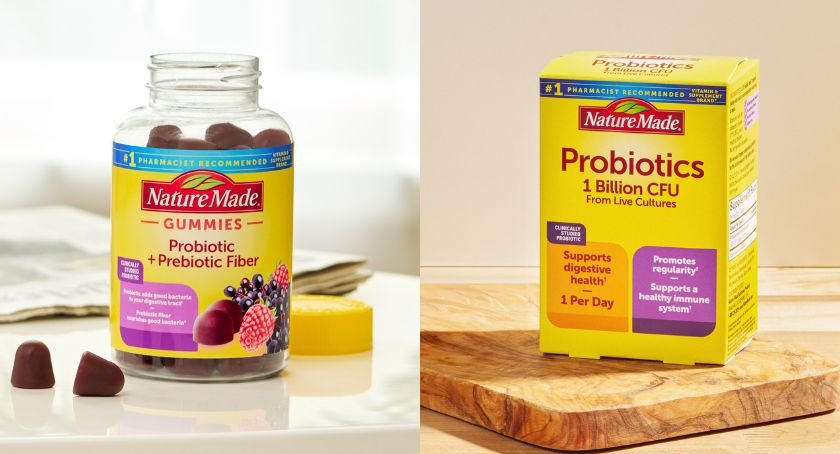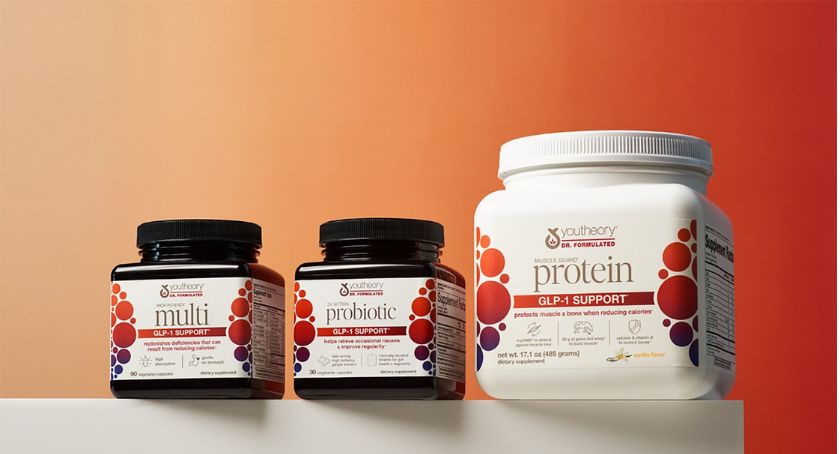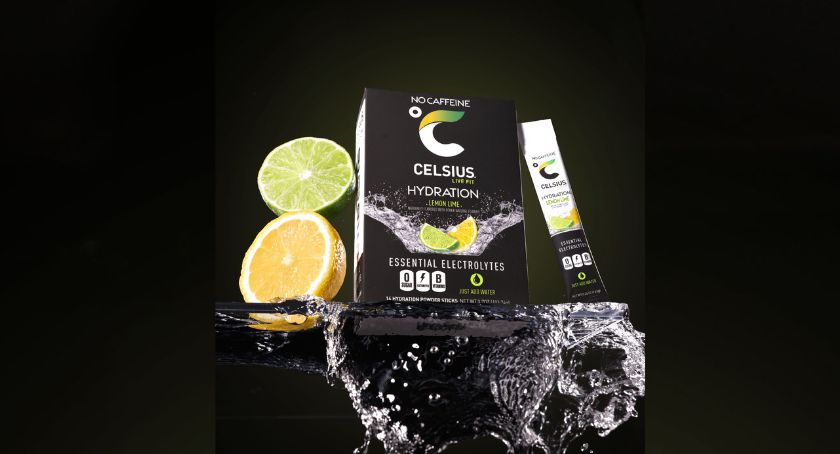Features
Women in STEM: Past, Present and Future of the Nutraceutical Industry
Mentorship programs, networking, and guidance such as those offered by Women in Nutraceuticals support and empower women at all stages of their careers.

By: Karin Hermoni

In the 10th grade, I really didn’t like science. As an athlete (specifically a synchronized swimmer), my thoughts were more focused on making it to the Olympics than on eukaryotic cells and mitochondria. Science class was far from my favorite place.
Then, everything changed. Our new teacher, Ms. Nira Hermoni, walked into the classroom, and suddenly, biology became my favorite subject. The mitochondria transformed into this magical organelle I wanted to learn more about, and everything seemed connected to my daily life and athletic goals. I found myself reflecting on ways to optimize my mitochondrial activity for the much-needed ATP boost I needed in the pool. Experiencing biology through her eyes was magical, colorful, and tangible.
I did not go to the Olympics, but my path led to a PhD in molecular nutrition and a career in the nutraceutical industry. Funny enough, Nira Hermoni, who introduced me to the wonders of science, also introduced me to my husband. Over the past 25 years, I have been fortunate to have her not only as an inspiring role model but also as my mother-in-law.
So when my 13-year-old daughter came home from school one day saying, “I hate science, and all this molecular talk,” I went into action to do what I do best — scientific storytelling. That evening, the sweet potato soup turned into cytoplasm; the bowl was the cell membrane, and the random vegetables on our dinner table ended up floating in the sweet potato cytoplasm, representing different cellular organelles.
Gradually, my daughter’s face changed from grumpy and confused to curious and intrigued. She even concluded, “Wow, this was pretty cool! Where did you learn to explain it like that?” (My heart was pounding; getting a compliment from your 13-year-old is a moment to be cherished.) “I learned it from the best,” I told her. “Your grandmother.”
This experience reminded me of the importance of reaching girls at a young age to spark their interest and build their confidence in STEM. It is absolutely crucial for building a “pipeline” of excellent women in STEM, ensuring a future where diversity and innovation thrive.
The Current State of Women in STEM
Have you considered the role that women play in STEM fields? Looking at the big picture reveals significant challenges and opportunities.Women make up only 28% of the workforce in science, technology, engineering, and mathematics, according to data from Australia-based STEM Women. This disparity is even more pronounced in specific fields such as engineering and computer science, where women account for only 15% and 25% of the workforce, respectively.
Despite earning 57% of all bachelor’s degrees, women only earn 35% of STEM degrees, according to areport on the STEMP gap from the American Association of University Women (AAUW).
Perhaps most relevant to our industry is that this gap widens at higher levels of academia as well as in professional and leadership roles within these fields.
Why Are Women Important to STEM?
First, it’s important to note that women in STEM is not only a “women’s issue.” I can certainly attest from experience that diversity in any field leads to a broader range of ideas and better solutions. In STEM, where innovation is key, having diverse perspectives is crucial. Indeed, studies show that diverse teams perform better.Women bring unique approaches to problem-solving and creativity. While it may not always be the case, women tend to impact the overall vibe of the team, bringing an open and compassionate approach. Compassionate leadership, which is often perceived as a more “feminine” style of leadership, might be different than old-fashioned leadership, but it is certainly powerful and effective. It creates engagement; it’s not a sign of weakness, as some may think.
Moreover, including more women in STEM fields will better address the gender biases in research and product development. For instance, in the medical field, historically, most research has been conducted on male subjects, leading to gaps in knowledge about women’s health. Having women in key positions can help drive more research, “by women for women,” ensuring that female consumer needs are well represented and that as an industry we consider the needs and perspectives of the entire population.
Lastly, as mentioned, female role models, teachers, and mentors are fueling the next generation of women in STEM. It’s essential we have many figures we can all be inspired by. Naturally that is, without diminishing the crucial role of male mentors in helping everyone, women included, unlock their full potential. Amazing male mentors were certainly drivers and supporters in my own journey.
Famous Women in STEM
Throughout history, many women have made significant contributions to STEM fields. Figures such as Marie Curie, who won Nobel Prizes in both Physics and Chemistry, and Ada Lovelace, who is often considered the first computer programmer, have paved the way for future generations. More recent figures include Katherine Johnson, whose calculations were critical to the success of NASA’s space missions, and Dr. Frances Arnold, who won the Nobel Prize in Chemistry in 2018 for her work in the directed evolution of enzymes.Alongside these world-renowned leaders and visionary women, there are so many heroes paving the way in each field. I feel honored to be part of an industry that is actively putting the spotlight on improving and supporting women in STEM.
Women in Nutraceuticals (WIN) is a nonprofit organization where volunteers from across the industry (male and female) come together to empower women in the nutraceutical industry. Its mission is to actively support a positive transformation and drive more women to leadership positions and entrepreneurship, as well as drive inclusive and female-centric research and innovation in the nutraceutical industry.
Experiences in the Nutraceuticals Industry
The nutraceutical industry, where science meets wellness, provides unique opportunities and challenges for women in STEM. As a consultant in this industry, I have had the privilege of working alongside brilliant women (and men) who are making significant strides in improving health and wellness through science. In fact, the WIN science committee is full of amazing men and women who are not only experts in STEM but are also passionate about humanity.Here are a few of their experiences …
Dr. Susan Kleiner, an expert in sports nutrition, shares her unique journey: “In the 20th century, nutrition was predominantly a female profession in practice, research, and academics. During graduate school and my time at the hospital, I was surrounded by female professors and colleagues, which shielded me from the misogynistic treatment many women in other sciences faced. In fact, three of my most influential mentors were male physicians.
“While I was part of the medical and administrative faculty at Duke University Medical Center in the 1980s, a male-dominated environment, my presence was curious at best and likely threatening at worst. However, I never directly faced the overt antagonism that my female colleagues in other departments did.
“My specialty in sports nutrition, particularly in bodybuilding and strength training, was the foundation of the sports nutrition nutraceutical industry. Here, I was the only female among male colleagues but received full respect and mutual admiration. As the sole female among the five co-founders of the International Society of Sports Nutrition (ISSN), I have always been an equal partner, and I witnessed my male colleagues train numerous female scientists over the years and promote female-centric research. Throughout my career, I have been fortunate to have allies at every step.”
Eleonora Cremonini, PhD, an assistant researcher at UC Davis in the Department of Nutrition, shares: “Being a woman in STEM in Academia is both rewarding and challenging. During my early scientific career, I’ve encountered implicit biases and stereotypes often faced by women in STEM, affecting experiences and opportunities.
“Balancing academic responsibilities with personal life, especially as a new mother and a soon-mother-to-be, presents significant challenges. Fortunately, institutions like UC Davis recognize the importance of work-life balance, mental health, and diversity, implementing supportive policies such as mentorship programs, diversity committees, and family-friendly practices.
“Although the effectiveness of these measures varies, I am proud to be part of UC Davis, ranked No.1 for best value colleges for women in STEM. With nearly 20 years in Academia, I find working in STEM to be deeply fulfilling. My connections with the nutraceutical industry, built over the years, help me provide young women in STEM with the tools they need to explore different career opportunities. The opportunity to contribute to the knowledge and inspire future women scientists motivates me to be a better mentor.”
Premalatha Balachandran, PhD, MBA, principal scientist at the University of Mississippi, shared: “As a woman scientist who moved from India to the United States, with a PhD in Medical Biochemistry, I’ve dedicated over three decades to the fascinating and demanding field of drug discovery research. My journey has been marked by significant milestones, including a recent venture into entrepreneurship by founding a technology-based startup company, PleXignal, focused on innovative platform technology, with the mission of ‘Signaling Success in Drug Discovery Research.’
“Despite the challenges as a woman in STEM, the drive to innovate and push the boundaries of science has been a powerful motivator. Every breakthrough and successful outcome reaffirms my commitment to this exciting field. As I reflect on my journey, I’m hopeful about the future for women in STEM, driven by a belief that with perseverance and support, we can continue to break barriers. This is why I see great value in support networks and mentorship programs for women in STEM and why I volunteer in WIN, helping to empower women and paving the way for future generations.”
The Future of Women in STEM
Looking forward, there is a growing movement to encourage more girls and women to pursue careers in STEM. Programs and initiatives aimed at young girls are crucial, yet support for women at every step in their journey makes a world of difference. While the situation is far from perfect, the nutraceutical industry is making strides. Mentorship programs, networking, and guidance such as those offered by Women in Nutraceuticals provide support and empowerment to women at all stages of their careers. That’s the power of community.About the Author: Karin Hermoni, PhD, is a globally recognized nutrition and wellness expert known for blending cutting-edge scientific expertise with extensive industry experience. Dr. Hermoni specializes in science commercialization. She utilized her broad experience at the intersection of Science and Product leadership to help bridge and connect the dots throughout the product lifecycle. She excels in building scientific strategies that are tailored to industry and market needs. Her consulting company Imagine Health was “imagined” to help companies create, refine, and deliver transformative solutions that promote the well-being of people and the planet. She is passionate about holistic wellness, Beauty from within and Women’s health. Dr Hermoni holds a PhD in molecular nutrition and has led many clinical and pre-clinical studies. She also co-chairs the science committee at the nonprofit organization Women in Nutraceuticals (WIN), where she helps promote scientific research done by women for women.




















